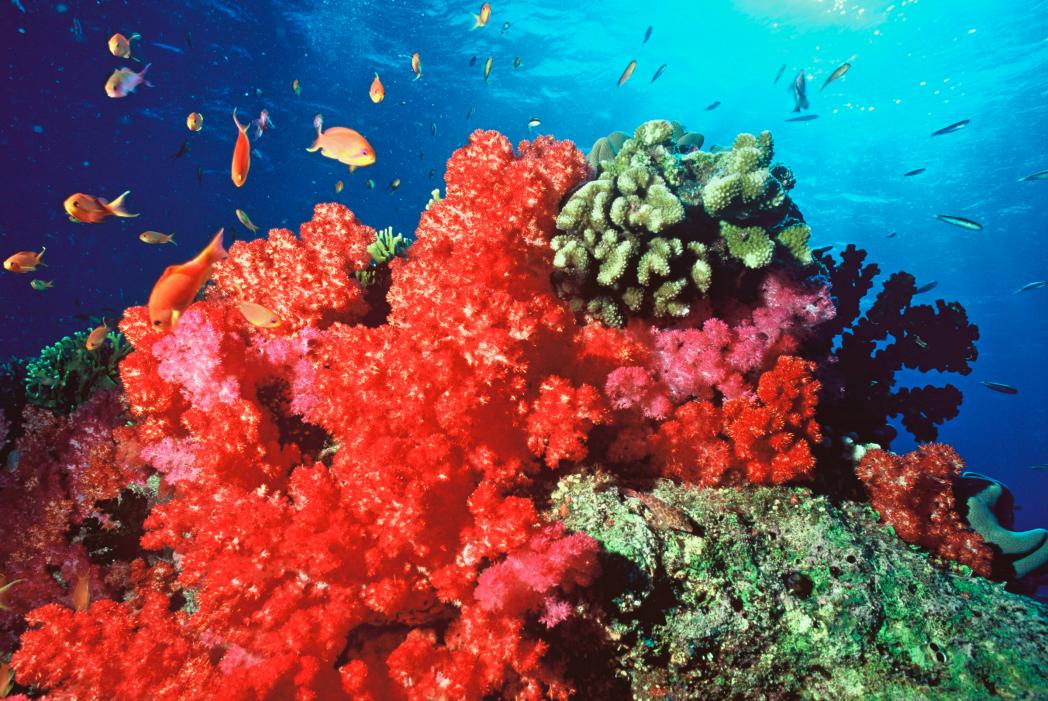Much of the dialogue around ocean finance to date has been focused on development finance, impact investment or the creation of new financial instruments, such as blue bonds. However, while offering much needed finance streams, these represent only a small proportion of the financial capital supporting the ocean economy. They will also likely be further overshadowed by the significant levels of mainstream finance targeting large-scale infrastructure development, energy, transport, commercial fisheries, aquaculture and tourism, amongst other sectors, over the next decade, particularly in the coastal fringes.
The current development trajectory and mounting concerns over the potential for Covid-19 economic recovery packages to opt for short-term development scenarios which do not follow green or blue development pathways, could exert further pressure on ocean ecosystems which are already in severe decline. If we are going to make real strides and move towards a sustainable blue economy, one which maintains healthy and resilient marine and coastal ecosystems and supports sustainable and inclusive development and societal needs, we must urgently push for systemic change in the mainstream finance sector.
Essential guardrails and regulations are needed to secure a truly “blue” financial system where sustainability criteria are systematically integrated into traditional financial services. It was this topic that prompted WWF and the Stockholm Resilience Centre at Stockholm University to host a conversation about leverage points in the financial sector for ocean sustainability, as part of the Virtual Ocean Dialogues.
Recognising the unprecedented “blue acceleration” and the levels of capital required to finance ocean industries, Jean-Baptiste Jouffray of the Stockholm Resilience Centre highlighted some of these financial leverage points. Bank loans in particular represent the main way companies finance their operations. Loans come with covenants – agreements between the bank and the borrower stipulating what the borrower can or cannot do. By incorporating sustainability criteria into loan covenants and binding companies to sustainable practices, the banking sector could play a prominent role in accelerating transformation toward more sustainable practices. Likewise, shareholder activism and more stringent sustainability criteria in the listing rules of a few stock exchanges could have big effects on publicly listed corporations operating in the ocean.

Liesel Van Ast from UNEP Finance Initiative outlined how the Sustainable Blue Economy Finance Principles, created in partnership by WWF, the European Commission, European Investment Bank and the International Sustainability Unit, already provides a framework to build resilience by guiding finance toward the most sustainable development pathways. UNEP FI’s new Sustainable Blue Economy Finance Initiative will convene a community of practice to develop criteria and pragmatic indicators for implementation of the principles.
Standard Chartered Bank launched a Sustainability Bond last year – an example put forward by Alex Kennedy, director of sustainable finance at the bank, of innovation in the banking sector - which allows investors to have exposure to projects in emerging markets that potentially carry higher risks. Through well governed and well understood UK Bank risk, the bond is helping to progress the SDGs in geographies where capital doesn’t usually flow, allowing them to help combat climate change and increase access to finance for entrepreneurs. He also emphasised the importance of learning from the green finance space, pointing to the recent progress on sustainable finance guidance or accountability frameworks.
The insurance sector, too, is crucial to leverage sustainable finance, create strong portfolios, and promote the inclusion of risk modelling in decision-making around finance for development. Chip Cunliffe with AXA XL talked about the need to develop sustainability-focused KPIs that look beyond some of the more traditional sectors in regards to a sustainable blue economy and create the right enabling conditions for the mainstream financial sector to leverage its influence. He also stressed the importance of working across the science-policy-practice interface to address the risks associated with unsustainable ocean development through innovative platforms, such as the newly formed Ocean Risk and Resilience Action Alliance.
The discussion that unfolded illustrated the value of such multi-perspective dialogue and the potential for co-production of knowledge. COVID-19 might well offer a unique moment in time to build back better, and an opportunity to transition to a new sustainable blue economy – by building long-term social and economic resilience through strengthening ocean health and ecosystem integrity. Enabling such transformative potential will demand strong collaboration across science, policy and practice communities to ensure that we have the knowledge, frameworks and political will to mobilise finance at the pace and scale that is needed to achieve a sustainable blue economy.
 Our work on sustainable finance
Our work on sustainable finance
 Why is Sustainable finance important?
Why is Sustainable finance important?
 Here are 10 myths about climate change
Here are 10 myths about climate change
 Learn about our oceans and marine life
Learn about our oceans and marine life